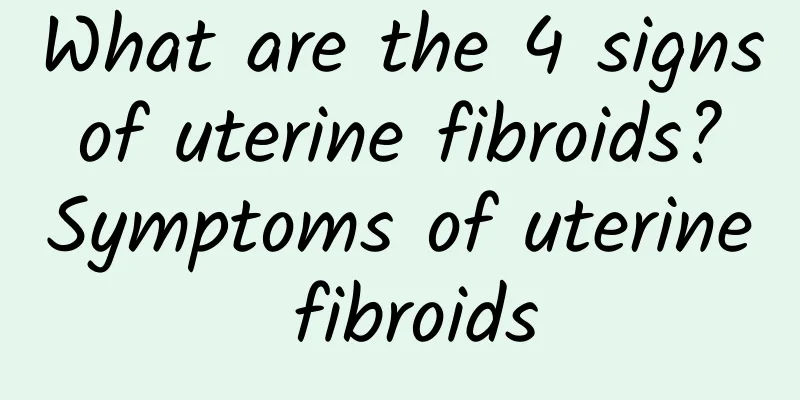Learn more about the symptoms of ovarian cysts

|
To treat ovarian cysts, it is crucial to understand the symptoms of ovarian cysts. In the early stage, ovarian cysts have no obvious clinical manifestations. Later, as the tumor grows, the patient will feel it. So what are the main symptoms of ovarian cysts ? 1. Lower abdominal distension and pain is the initial symptom of ovarian cyst before the patient touches the lower abdominal mass. Due to the weight of the tumor itself and the influence of intestinal peristalsis and changes in body position, the tumor moves in the pelvic cavity, involving its pedicle and pelvic funnel ligament, so that the patient has a feeling of fullness and falling in the lower abdomen or iliac fossa. 2. Abdominal pain. If the tumor has no complications, there is very little pain. Therefore, if patients with ovarian tumors feel abdominal pain, especially if it occurs suddenly, it is mostly caused by the twisting of the tumor pedicle, or occasionally by tumor rupture, bleeding or infection. In addition, malignant cysts often cause abdominal pain and leg pain, and the pain often causes patients to seek emergency treatment. 3. Menstrual disorders. Generally, ovarian cysts, even bilateral ovarian cysts, do not cause menstrual disorders because they do not destroy all normal ovarian tissues. Some uterine bleeding is not endocrine, but may be caused by ovarian tumors that change the pelvic blood vessels, causing endometrial congestion; or by ovarian malignant tumors that directly metastasize to the endometrium. Menstrual disorders caused by endocrine tumors are often combined with other secretory effects. 4. Increased abdominal circumference and abdominal mass are common symptoms of ovarian cysts. Patients notice that their clothes or belts are too tight, and then they notice that their abdomen is enlarged, or they feel it accidentally in the morning, so they press their abdomen and find that there is a mass in the abdomen, plus abdominal distension and discomfort. 5. Compression symptoms. A huge ovarian tumor can cause dyspnea and palpitations due to compression of the diaphragm. Ovarian tumors combined with a large amount of ascites can also cause such symptoms. Through the understanding of the above symptoms of ovarian cysts, it is recommended that you should check and treat as soon as possible if you have slight discomfort to avoid greater harm and unnecessary impact on everyone. I hope everyone has a healthy body. |
<<: Can patients with cervicitis realize their dream of pregnancy?
>>: Patients with ectopic pregnancy should be aware of their early symptoms in time
Recommend
Weight control during pregnancy reduces birth risks
As time goes by, the idea that one person can pro...
What are the early symptoms of uterine fibroids? What are the early symptoms of uterine fibroids?
What are the early symptoms of uterine fibroids? ...
What are the drugs used to treat acute peritonitis?
What is the best medicine for female pelvic perit...
Atractylodes macrocephala, ginger and jujube paste can be used for the dietary treatment of cervical erosion
Patients with cervical erosion can choose appropr...
What symptoms will occur after suffering from chronic cervicitis?
Chronic cervicitis is a type of cervicitis. Chron...
Why does irregular menstruation occur?
Irregular menstruation is a common physiological ...
What is an ovarian cyst?
What is an ovarian cyst? Are there obvious sympto...
The rainy season is hot and humid! Wu Mingzhu: Drinking Si Shen Soup can dispel dampness and strengthen the spleen
The hot summer of May is accompanied by the rainy...
What tests should be done for Bartholinitis?
What tests should be done for Bartholinitis? Expe...
Can I get pregnant if I am diagnosed with chronic cervicitis? What are the hazards of chronic cervicitis?
Nowadays, women are more open to sex and their se...
What should you pay attention to in your daily diet if you have pelvic inflammatory disease?
Pelvic inflammatory disease is one of the most co...
What medicine is effective for cervicitis
The treatment of cervicitis requires comprehensiv...
What is it like to have uterine fibroids? Will uterine fibroids lead to infertility?
Uterine fibroids (Hysteromyoma) Uterine leiomyoma...
What are the harms of long-term amenorrhea to the body?
What harm does long-term amenorrhea do to the bod...
Is endometrial tuberculosis difficult to cure?
In daily life, women need to pay attention to the...









